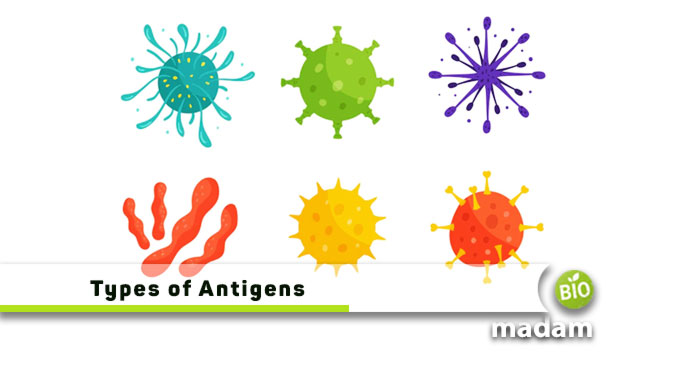Antigens are molecules that generate an immune response and stimulate the formation of different antibodies or T cells. Different types of antigens are involved in producing the basic immune response in the body; however, they are all not the same.
They are found on tumors, bacteria, and viruses for the body to detect if they are harmful. The body initiates an immune reaction by producing antibodies against them. Particular antigens stimulate specific antibodies.
Antigens and pathogens may be used interchangeably when an antigen develops a disease in the body. However, the antigens are of different types, and some may not activate the immune system.
While lymphocytes recognize all antigens, they all do not activate lymphocytes. Antigens are denoted by ‘Ag’ used for all kinds of antigens.
In simple words, an antigen is any entity that enters your body and acts as a foreign particle to induce an immune response.
However, sometimes they might not initiate an immune reaction. Antigens producing a response are known as immunogens. Your body’s reaction against antigens depends on specific regions of the antigens called antigenic determinants.
Most antigens are proteins, polysaccharides or peptides, but some may be nucleic acids or types of fats combined with the previously mentioned compounds. Sometimes, antigens may be introduced into the body to produce antibodies for improved immune response.
Structure of Antigens
As antigens produce and bind to antibodies, like IgG and IgM, in the body, they differentiate through their molecular structures. Antigens could be in the form of capsules, coated structures, various types of toxins, viruses, and bacteria.
Most antigens are proteins and polysaccharides, as mentioned above, sometimes combined with nucleic acids and lipids. All antigens have an antigenic determinant that determines the degree of immunogenicity. The number of antigenic determinants (epitopes) determines the number of antibodies antigens can bind to. The chemical structure, physical properties, size and nature of antigen impact the immunogenicity.
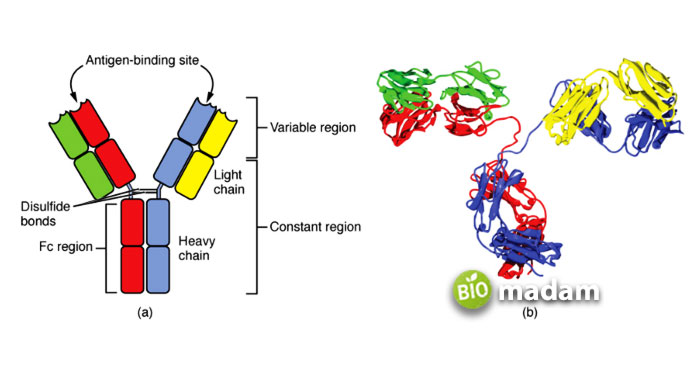
Properties of Antigens
Though antigens have different characteristics that distinguish them from one another, a few properties are essential for all antigens. They determine the immunogenicity and are considered necessary for the function. Let’s tell you about the common characteristics of all antigens before getting into the details of various types.
Foreign Nature
Antigens must be foreign to the host and recognized by different types of body immunity as an external component. The more foreign the particles are, the higher the immunogenic response they will produce. However, exceptions are also present, like no response from an antigen or immunity against a protein or other component within the body.
Antigenic Determinants
Antigenic determinants are the most important factor when it comes to determining the immunogenicity of an antigen. The antigenic determinant is the part of the antigen that produces an immunogenic response. Antigens with one antigenic determinant may not produce an immunogenic response. Contrarily, those with two or more determinants may produce antibodies. Sometimes, antibodies produced by one antigen may also act on interaction with another antigen.
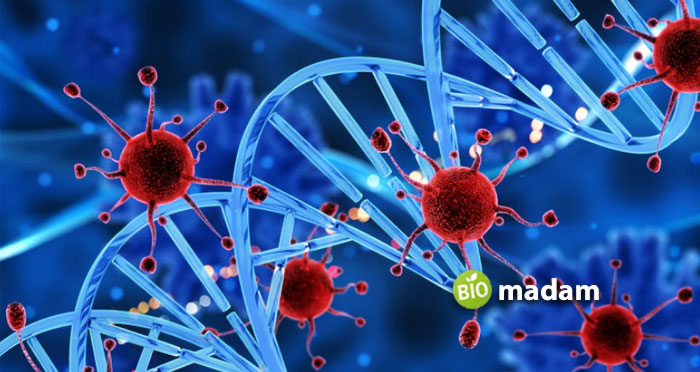
Composition
Proteins and polysaccharides are the body’s most potent antigens, individually or in combination with nucleic acids and lipids. Proteins containing at least 30% glutamine, lysine, glutamic acids, aspartic acid, asparagine, and arginine are antigens. Furthermore, an increase in heterogeneity of antigen molecules increases the level of immunogenicity. The structure of antigens also contributes to immunogenicity in other ways like:
- The complexity of the molecules also determines the immune response produced by the antigens.
- Rigid molecules are considered better antigens compared to less rigid antigens.
- Molecules with multiple amino acid units are more immunogenic than single amino acid structures.
Size of Molecules
Besides the heterogeneity and amount of amino acids in the molecules, molecular size plays a major role in immunogenicity. Antigens with over a size of 5000Da can be considered immunogenic. However, they are weak antigens as strong antigens range between 14,000 to 600,000 Da. Smaller molecules do not exhibit immunogenicity on their own. They are known as ‘haptens’ and produce an immune response only when combined with large-sized carriers.
Physical Nature
Besides chemical properties, physical properties also influence the immunogenicity of the antigens. You might be surprised to know that denatured antigens produce a higher immunogenic response than their original form. Moreover, particulate antigens are more immunogenic than physical antigens.
Organ and Species Specificity
The antigens producing a response in one species are different from the other. Similarly, some antigens are also organ-specific and work only on specific organs. For example, some pathogens do not produce disease in fungi or animals but humans. Also, some proteins of the kidney and brain may share specificity with another species.
Now that you are familiar with the structure and properties of antigens let us dig into the types of antigens.
Types of Antigens
Antigens are divided into various types based on different parameters. They are categorized on the basis of their immune response and their class or origin.
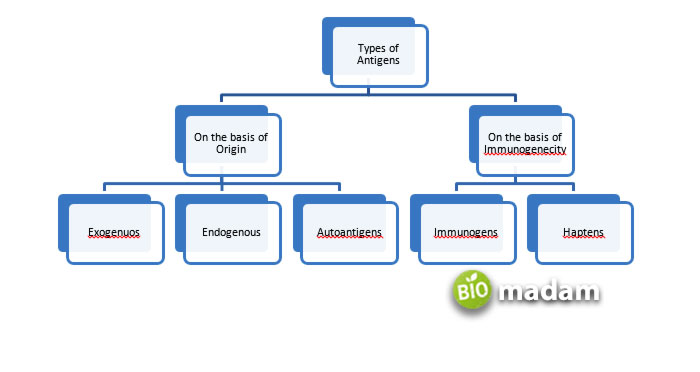
On the Basis of Origin
Exogenous Antigens
Exogenous antigens refer to a particle or molecule foreign to the body. Thus, anything entering your body from the outside that the body does not recognize as a component of the body is an exogenous antigen.
Exogenous antigens may enter the body through ingestion (mouth), inhalation (nose), or injection. The exogenous antigens are taken into the blood or plasma, and antigen processing cells mediate the uptake, including macrophages. Sometimes, exogenous antigens may become endogenous over time such as viruses.
Examples of exogenous antigens include viruses, bacteria, some algae and fungi, protozoan, and similar parasites.
Endogenous Antigens
As the name suggests, endogenous antigens are molecules within the body and do not enter the body from outside. They are typically cells and compounds within the body formed from the metabolism of intracellular infection (where exogenous compounds become endogenous). Endogens are processed by the macrophages and later acted on by the cytotoxic T cells. They may lead to autoimmune diseases like rheumatoid arthritis, psoriatic arthritis, multiple sclerosis, etc. These antigens may be autologous, heterologous, or allogenic.
Examples of endogenous antigens include the HLA (Histocompatibility Leukocyte antigens).
Autoantigens
Autoantigens should not be present normally in the body; however, they are recognized by the immune system in case of autoimmune diseases. The loss of immunological tolerance for these molecules or cells in autoimmune disease patients makes them an antigen.
Examples of autoantigens are nucleic acids and nucleoproteins in autoimmune patients.
On the Basis of Immunogenicity
Immunogens
Immunogens are also known as complete antigens, as they can produce an immune response in the body. They do not require carrier proteins to trigger immunogenicity because of their high weight of more than 10,000 Da. Immunogens are typically polysaccharides or proteins.
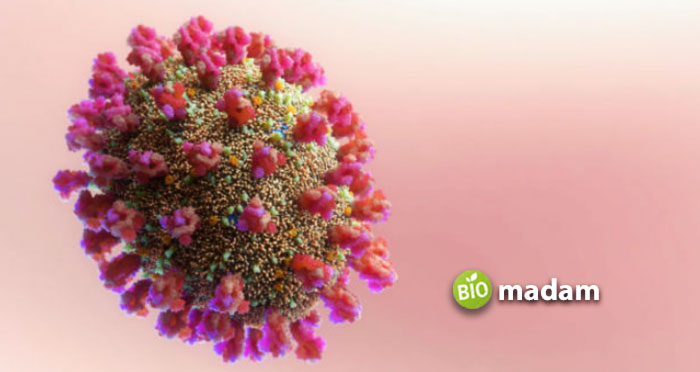
Haptens
Haptens or incomplete immunogens are usually foreign substances. They are non-protein particles or molecules with less than 10,000 Da weight and require carrier molecules with higher weight to become complete antigens. The carrier proteins are non-antigenic and help stimulate an immune response.
Urushiol is a common hapten found in the Poison Ivy Plant, whereas cardiolipin antigens are examples of haptens in humans.
Common Antigen Terms
Besides the above-mentioned types of antigens, there are a few common terms you will come across when studying antigens.
Epitope: Epitopes, also known as antigenic determinants are the immunologically active parts of the antigen that bind to particular membrane receptors on B-cells and T cells.
Alloantigens: They are unique antigens present in different members of the same species. Blood group antigens are the most common example of alloantigens.
Antibodies: Antibodies are proteins produced by B lymphocytes in the body in response to a particular antigen. They may be produced on exposure to an endogenic, exogenic or autoantigen.
Adjuvants: Adjuvants are non-immunogenic by themselves but enhance the immunogenicity in haptens. Carrier proteins are usual adjuvants in immunogenic responses.
Native Antigens: Native antigens are not recognized and processed by antigen-presenting cells, which avoids the binding of T-cells. However, B-cells may activate these molecules without processing.
Neoantigens: They are also known as tumor antigens and present on the surface of malignant or benign tumor cells. They are produced due to mutations in the cells during malignant transformations. They do not generally stimulate an immune response.
Superantigens: Superantigens activate around 25% of the T-cell fraction in case of a T-dependent antigen. They may be associated with viruses, bacteria, or other parasites. Superantigens work by hyperactivation according to the antigen.
What is an Antigen-Antibody Complex?
An antigen-antibody complex forms when antigens bind to antibodies. The antibodies recognize the antigens due to the epitopes and paratopes present on them. The linking between antigens and antibodies is highly specific, depending on the molecular structure.
The antigen-antibody performs various functions, including complement deposition and phagocytosis. The immune complexes majorly manage antibody production in the body, leading to antibody activation. However, the disposition of immune complexes may lead to autoimmune diseases.
What is an Antigen Test?
The presence of an antigen in the body can be identified and confirmed through antigen tests. These tests examine your body fluids and components through your spit, blood, urine, or feces to find the antigen causing a particular disease. They are one of the most important elements in understanding the nature of the disease. Antigen tests can be used for various purposes, including bacterial or viral infections. It is recommended to get these tests when the initial symptoms appear as the amount of antigen is the highest during that period.
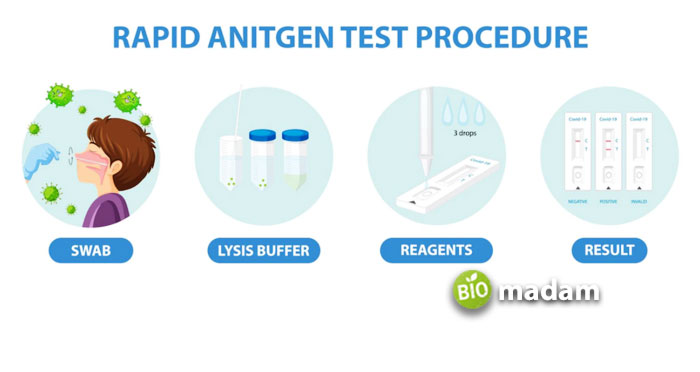
The Bottom Line
Antigens are markers that inform your body of an unknown molecule or entity that has invaded the body and might harm it. They may enter the body from the environment or develop due to physiological processes. Some antigens have the capability of producing an immune response and are known as immunogens. On the contrary, haptens do not exhibit immunogenicity. Understanding the types of antigens has helped improve healthcare and develop adequate treatments. Recognizing antigens leading to the production of antibodies and exhibiting signs and symptoms of disease plays a significant role in maintaining health.
FAQs
What is the most common type of antigen?
Xenoantigens are the most common type of antigen present on spikes of viruses and bacterial cell walls. They enable the immune system to detect the foreign entity that enters the body.
Are antigens proteins?
Antigens are generally polysaccharides and proteins containing at least 30% amino acids. However, some antigens may also comprise nucleic acids, lipids, and polypeptides, Antigens other than proteins and polysaccharides require carrier proteins for immunogenic response.
What are functions of antigens?
Antigens are foreign bodies that activate the immune system to produce an immune response in the body. They may initiate the production of antibodies or go unnoticed sometimes. Viruses as antigens are often used to prepare the body against diseases through vaccination.
What are the types of antigens?
Antigens are of many types and are widely categorized as immunogens or haptens. All antigens may be put into one of the two classifications depending on their ability to produce an immune response. Immunogens have the ability to initiate a reaction in the body, whereas haptens are incomplete immunogens. Haptens do not lead to antibody production.
Is antigen a disease?
Antigens do not cause diseases every time, but sometimes they may lead to serious symptoms. Viruses, bacteria, and other pathogens with antigenic determinants may produce disease in the body. The presence of antigenic determinants on the antigens leads to the body’s action against them.

Jeannie has achieved her Master’s degree in science and technology and is further pursuing a Ph.D. She desires to provide you the validated knowledge about science, technology, and the environment through writing articles.

